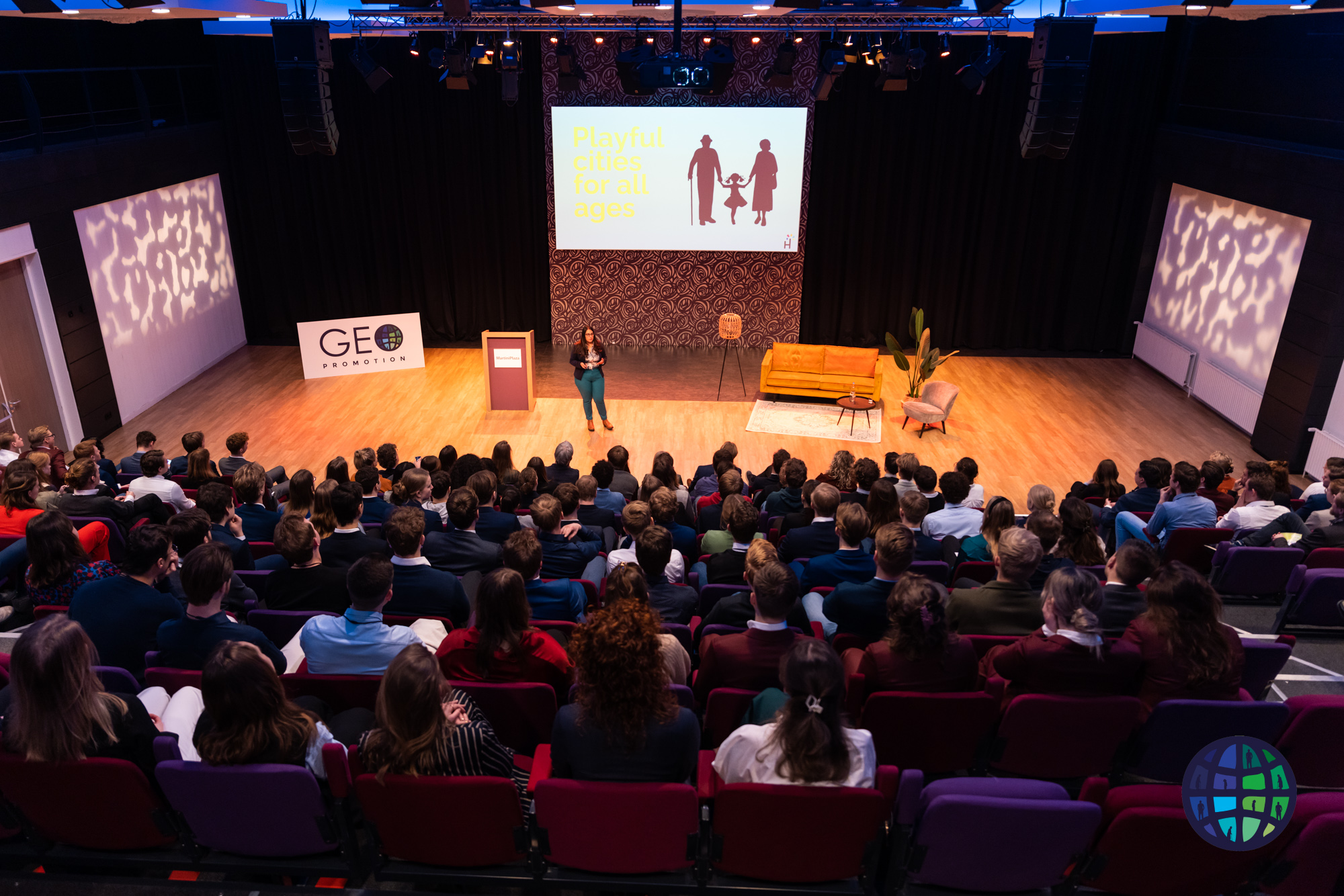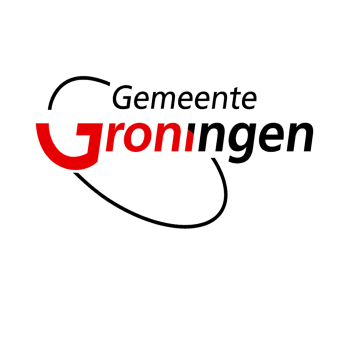
Project Description
Society is currently facing pressing issues regarding the housing crisis, the energy crisis, and overburdened infrastructure. These issues demand critical thinking and creative innovations. Are these crises to be addressed merely in the short term, or are long-term solutions required? What is implemented today might not hold up a
few decades from now. Do current slow processes, like an aging population and the individualization of society, ask for fast and immediate responses? And how do different generations interact? Is it possible to create places where small children, students, and elderly can meet? Is it even in our power to connect generations through planning? New ways of dealing with these challenges should be found, not only for current generations but also for generations yet to be born. In addressing such questions, you, the future geographers, spatial planners, and real estate spe-
cialists have an important role to play.
Host odf the day: Laura Bas
Laura Bas (1996) is a multiple award-winning Changemaker, Public Speaker and Moderator. As a speaker, she specializes in meaningful youth participation, millennials, gen z and gender equality. Last April, at age 25, Laura addressed the importance of youth participation and gender equality to world leaders at the United Nations with a self-written speech. In addition, she was employed by the Dutch Ministry of Foreign Affairs as Youth Ambassador for Sexual Rights and Gender Equality. In that role, she consulted hundreds of young people, who shared insights and recommendations with her. The United Nations is not the only international stage Laura entered. She has spoken at TEDxAmsterdamWomen, Unicef, Microsoft and Girls not Brides. She expanded her knowledge about young people and equal opportunities in the labor market, by conducting research on Millennials & Work together with generation expert Dr. Aart Bontekoning. Moreover, she has been advising several organizations on youth participation.
Keynote speakers:
*absent due to illness* (1) Peter Pelzer is Assistant Professor in the Department of Human Geography and Planning and affiliated with the Urban Futures Studio, both at Utrecht University. According to Peter, spatial planners need to be more future-oriented in their approach to dealing with major long-term crises. In his essay “Verantwoordelijk voor de toekomst,” he addresses the question of what the open, resilient city of the future looks like.
Besides his academic career, you can know Peter as one of the hosts of the podcast “Onder Planologen”, in which he discusses the history of Dutch spatial planning with researchers and those directly involved.
(2) Emiel Reiding (1970) is director of the Metropolitan Region Amsterdam (MRA). This region has an enormous appeal to people who want to live there, to visitors and companies. However, the high quality of life is under pressure in various areas and requires a leap in scale in a number of areas.
In the MRA, 33 governments work together in the field of spatial development, economy and mobility.
With a share of more than 20% in the gross domestic product, the MRA is the engine of the Dutch economy.
Reiding previously worked at the Ministry of the Interior as director of The National Strategy of Spatial Planning and the Environment, which deals with the future design and development of the living environment in the Netherlands
(3) Viviana Cordero is a co-founder of Huasipichanga, an urban consultancy focused on creating more playful, inclusive, and livable cities. Her work is focused on planning cities hand in hand with children driven by the concepts of co-creation and intergenerational justice. She is a leader at the PlacemakingX global network and is currently doing a Ph.D. on child-friendly cities at the Faculty of Spatial Sciences at the University of Groningen.
Playful cities
Public spaces reflect how inclusive a society is. It is in the public space that people from all generations can meet and interact. In this keynote, I would present how playful cities can improve intergenerational interaction increasing well-being. People of all ages need to play to develop their cognitive, physical, social, creative, and emotional skills. Planning, placemaking, and design can help us include play in the city to foster healthy generations of citizens.
(4) Jodi Sturge is an assistant professor with the Interaction Design (IxD) group in the Department of Design, Production and Management, Faculty of Engineering Technology at the University of Twente. As a health geographer and design researcher, she is interested in how the design of built environments and technology can enhance human interaction, health and well-being. Jodi has a PhD in Demography from the Faculty of Spatial Sciences at the University of Groningen. Her research focused on the mobility, social health and well-being of people with memory problems and dementia in public space. Jodi has experience conducting transdisciplinary, mixed-method research and evaluation that support inclusive, accessible, and socially sustainable design.
Ageing in place: a socially sustainable approach to planning public spaces and housing for older adults
Participating companies:
Antea Group
Dura Vermeer Bouw Hengelo
Geon
Metafoor Ruimtelijke Ontwikkeling
Nationaal Woningbouwtraineeship
Procap
Rijksvastgoedbedrijf
Rijkswaterstaat
SITE Urban Development
Sweco
Waterschap Noorderzijlvest
Witteveen+Bos
YER
Other partners
Dutch Boosting Group
Jelmer Talent Lab
Rho Adviseurs
SAC Groningen
Dutch Boosting Group
Jelmer Talent Lab
Rho Adviseurs
SAC Groningen
The board:

Chairman: Lieke Mijnheer
Vice-chairman: Frenk van Stipriaan
Secretary: Merle Aarnink
Treasurer: Mike Löwik
Commissioner Internal Relations: Esmee Appelman
Commissioner External Relations: Mariëlle Lunshof


